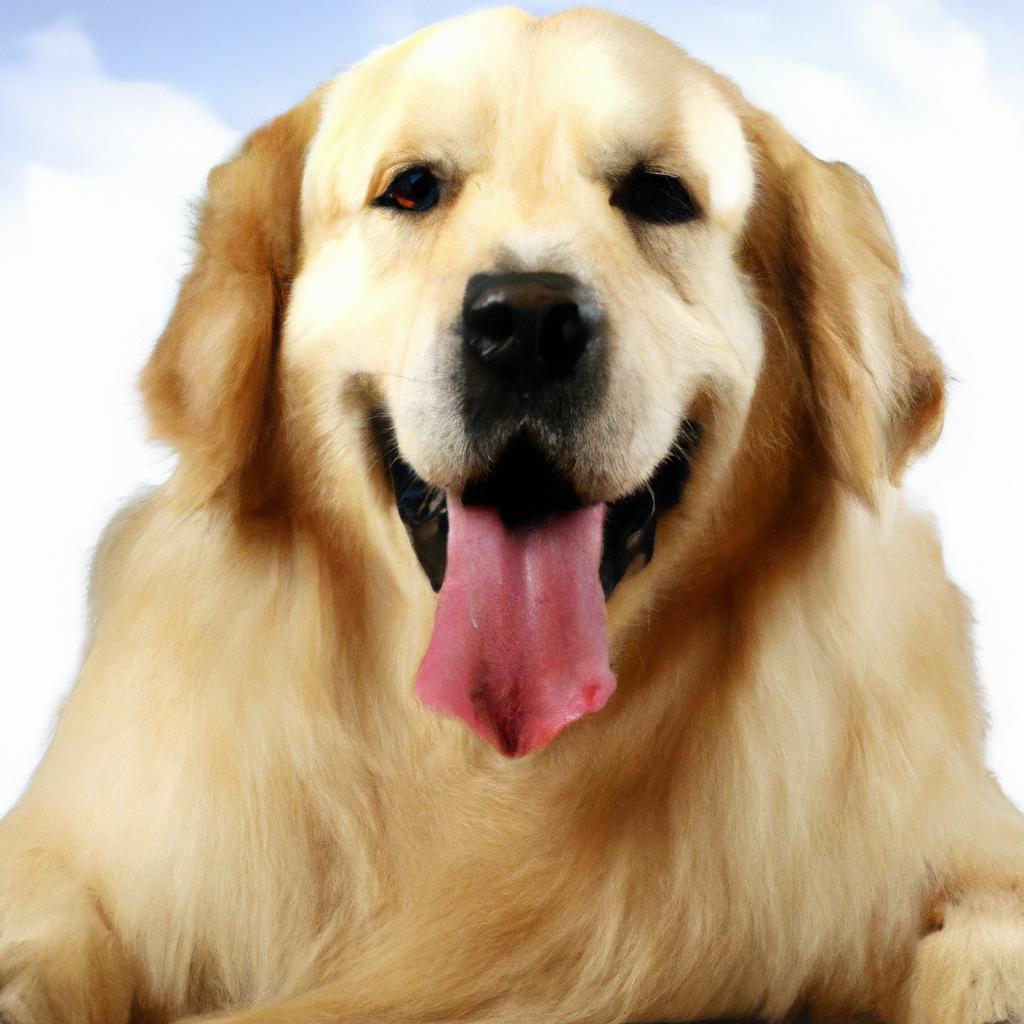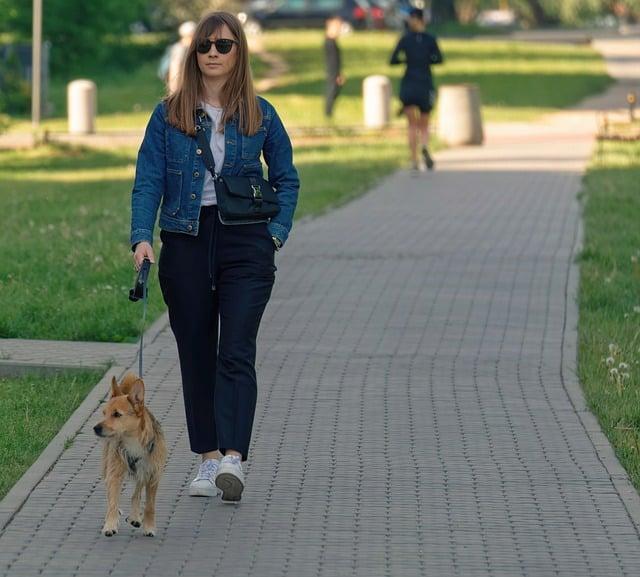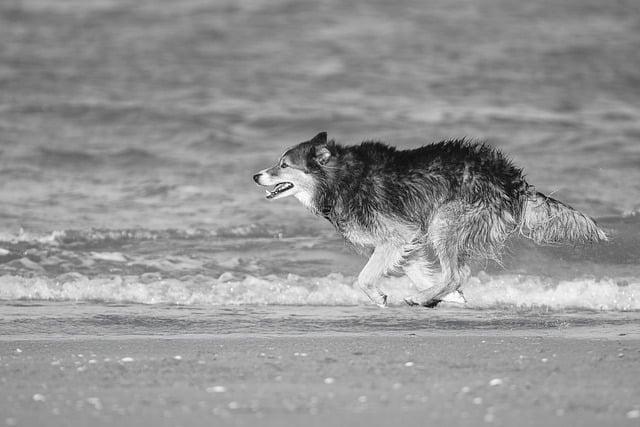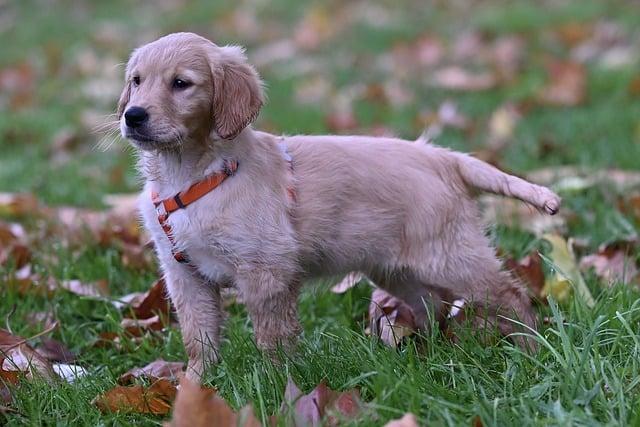Imagine standing in a park, the sun shining brightly, when suddenly, a colossal figure catches your eye. It’s a Great Dane, towering over the other dogs, its gentle demeanor contrasting with its impressive size. Known as the “Apollo of dogs,” the Great Dane can reach heights of up to 34 inches at the shoulder, making it one of the largest breeds in the world. But size isn’t everything; their affectionate nature and loyalty make them perfect companions. If you’re seeking a gentle giant to enrich your life, the Great Dane might just be your ideal match.
Contents
- Understanding the Characteristics of the Largest Dog Breeds
- Evaluating the Health and Care Needs of Giant Dogs
- Choosing the Right Environment for Your Large Breed Companion
- Training and Socialization Tips for Massive Dog Breeds
- Q&A
Understanding the Characteristics of the Largest Dog Breeds
When exploring the realm of the largest dog breeds, one cannot overlook their **imposing stature** and **gentle demeanor**. These magnificent canines often stand tall, with some breeds reaching heights of over 30 inches at the shoulder. Their sheer size can be both awe-inspiring and intimidating, yet many of these breeds are known for their affectionate nature and loyalty. Understanding their characteristics is essential for potential owners who wish to welcome one of these giants into their homes.
Among the most notable traits of large dog breeds is their **robust build**. Breeds such as the Great Dane and the Mastiff possess a muscular frame that not only contributes to their strength but also to their overall health. However, it’s important to recognize that their size comes with specific health considerations. Large breeds are often prone to conditions such as hip dysplasia and heart issues, making regular veterinary check-ups and a proper diet crucial for their well-being.
Another characteristic that sets these breeds apart is their **temperament**. Many of the largest dog breeds are known for their **calm and patient nature**. For instance, the Newfoundland is celebrated for its gentle disposition, making it an excellent family companion. Similarly, the Irish Wolfhound, despite its towering height, is often described as a **gentle giant**. These breeds typically thrive on companionship and require socialization to ensure they develop into well-rounded pets.
Lastly, the **exercise needs** of large dog breeds can vary significantly. While some may require less intense activity, others, like the German Shepherd, thrive on regular exercise and mental stimulation. Owners must be prepared to provide ample space and opportunities for their dogs to move freely. This not only helps maintain their physical health but also supports their mental well-being, ensuring they remain happy and engaged members of the family.
Evaluating the Health and Care Needs of Giant Dogs
When it comes to giant dog breeds, understanding their unique health and care needs is essential for ensuring their well-being. These majestic animals, while often gentle giants, are predisposed to certain health issues that require vigilant monitoring and proactive management. Regular veterinary check-ups are crucial, as they can help identify potential problems early on, allowing for timely intervention and treatment.
Nutrition plays a pivotal role in the health of large breeds. A balanced diet tailored to their size and activity level can help prevent obesity, which is a common concern among giant dogs. Owners should consider high-quality dog food that meets the specific nutritional requirements of large breeds, focusing on ingredients that promote joint health and overall vitality. Additionally, portion control is vital to avoid overfeeding, which can lead to serious health complications.
Exercise is another critical component of maintaining a giant dog’s health. While they may have a calm demeanor, these breeds require regular physical activity to keep them fit and mentally stimulated. Engaging in daily walks, playtime, and interactive activities can help prevent behavioral issues and promote a healthy weight. It’s important to tailor the exercise routine to the dog’s age and physical condition, ensuring that they are not overexerted.
Lastly, grooming and hygiene should not be overlooked. Giant breeds often have specific grooming needs that can impact their skin and coat health. Regular brushing helps reduce shedding and prevents matting, while routine baths keep their skin clean and free from irritants. Additionally, dental care is essential; owners should establish a regular dental hygiene routine to prevent periodontal disease, which can affect their overall health. By addressing these key areas, owners can significantly enhance the quality of life for their giant canine companions.
Choosing the Right Environment for Your Large Breed Companion
When welcoming a large breed dog into your home, it’s essential to consider the environment that will best suit their needs. These majestic companions thrive in spaces that allow them to move freely and comfortably. A spacious home with an open floor plan can provide the necessary room for your dog to roam, play, and relax without feeling confined. Additionally, having a secure yard is crucial, as it offers a safe area for your dog to exercise and explore while keeping them away from potential hazards.
Large breeds often require more than just physical space; they also benefit from an environment that stimulates their minds. Incorporating interactive toys and engaging activities can help keep your dog mentally sharp and prevent boredom. Consider setting up a designated play area where your dog can enjoy various activities, such as fetch or agility training. This not only enhances their physical health but also strengthens the bond between you and your furry friend.
Another important factor to consider is the presence of other pets and family members. Large breed dogs can be gentle giants, but their size can unintentionally intimidate smaller animals or young children. It’s vital to create a harmonious environment by introducing your large breed to other pets gradually and supervising their interactions. Establishing clear boundaries and providing a safe space for all pets can help ensure a peaceful coexistence.
Lastly, climate and weather conditions play a significant role in your large breed’s comfort. Some breeds are more sensitive to extreme temperatures, so it’s essential to provide adequate shelter and temperature control. Ensure that your home is well-ventilated during hot months and warm enough during colder seasons. By taking these factors into account, you can create a nurturing environment that promotes the well-being and happiness of your large breed companion.
Training and Socialization Tips for Massive Dog Breeds
Training and socialization are crucial for massive dog breeds, not only to ensure their well-being but also to promote a harmonious relationship with their families and communities. These breeds, often weighing over 100 pounds, require a firm yet gentle approach to training. **Positive reinforcement** techniques, such as treats and praise, can be particularly effective. This method encourages good behavior while fostering a strong bond between the dog and its owner.
Socialization should begin at an early age. Exposing your massive dog to various environments, people, and other animals helps them develop confidence and reduces the likelihood of fear-based aggression. Consider the following strategies for effective socialization:
- **Puppy classes**: Enroll your dog in a class specifically designed for large breeds to learn basic commands and interact with other dogs.
- **Public outings**: Take your dog to parks, pet-friendly stores, and community events to expose them to different sights and sounds.
- **Playdates**: Arrange playdates with other well-mannered dogs to help your pet learn appropriate social behaviors.
Consistency is key when training massive dog breeds. Establishing a routine helps your dog understand expectations and reinforces their learning. Use clear commands and hand signals, and ensure that all family members are on the same page regarding training methods. This unified approach prevents confusion and strengthens the training process. Additionally, incorporating **mental stimulation** through puzzle toys or obedience games can keep your dog engaged and focused.
Lastly, patience is essential. Massive breeds may take longer to learn commands due to their size and temperament. Celebrate small victories and remain calm during setbacks. Remember, the goal is to create a well-adjusted, obedient companion who can thrive in various situations. By investing time and effort into training and socialization, you will not only enhance your dog’s quality of life but also ensure a safe and enjoyable experience for everyone around them.
Q&A
-
What is the largest dog breed in the world?
The Great Dane holds the title for the largest dog breed, known for its impressive height and gentle demeanor. Males can reach heights of up to 34 inches at the shoulder, making them a towering presence in the canine world.
-
How much does a Great Dane weigh?
Great Danes typically weigh between 110 to 175 pounds, with males generally being heavier than females. Their size can be intimidating, but they are often referred to as “gentle giants” due to their friendly nature.
-
Are Great Danes good family pets?
Absolutely! Great Danes are known for their affectionate and friendly temperament, making them excellent family pets. They are great with children and can adapt well to various living situations, provided they receive proper training and socialization.
-
What are the health considerations for large dog breeds?
Large dog breeds like the Great Dane can be prone to certain health issues, including hip dysplasia and heart problems. Regular veterinary check-ups, a balanced diet, and appropriate exercise are crucial to ensuring their health and longevity.
understanding the biggest dog breed goes beyond mere size; it encompasses the unique traits and responsibilities that come with these gentle giants. Choose wisely, and you’ll find a loyal companion that enriches your life in immeasurable ways.

大家好,我是彼得潘,專業的手法身體治療師。我喜歡探索和研究各種主題,並透過與人工智慧的合作分享專業、實用、有趣的文章。我們定期進行人工審核,以確保內容的準確性。如果您發現文章中有任何不準確的地方,請隨時與我們聯繫,我們會及時糾正。您可以透過 [email protected] 與我們聯繫。



